Advance CTE is developing a case study that tells the full story of Delaware’s initiative to integrate environmental literacy into secondary pathways. This case study outlines the project’s timeline, key lessons learned, and next steps to offer guidance on implementation for states interested in adapting Delaware’s approach to sustainability through integrating environmental literacy into CTE pathways.
In Delaware, flooded roads and rising sea levels disrupt daily routines, making environmental challenges part of everyday life. That’s why the state is turning to CTE as a powerful tool to prepare learners for in-demand careers and lead more sustainable lifestyles.
Delaware’s rich agricultural roots and vulnerable coastline place it at the frontlines of climate impact. With national momentum toward sustainability and millions of green jobs projected, the state has both a reason and an opportunity to lead. In 2015, Delaware put official stakes in the ground by launching the Environmental Literacy Plan, calling for “meaningful outdoor experiences” to help residents connect with and understand the environment.
That plan became the blueprint for a bold approach: weaving environmental literacy into career pathways that prepare residents for the future of work.
In 2022, the Delaware Department of Education (DDOE) secured funding from the National Oceanic and Atmospheric Administation (NOAA) and partnered with Advance CTE to create resources that Delaware Pathways educators can use to cultivate environmental literacy. Over the course of three years, the project team engaged more than 100 cross-sector and multi-governmental partners and stakeholders to develop environmental literacy competencies; align program-level standards with those competencies; conduct a pilot project; and develop an environmental literacy framework.
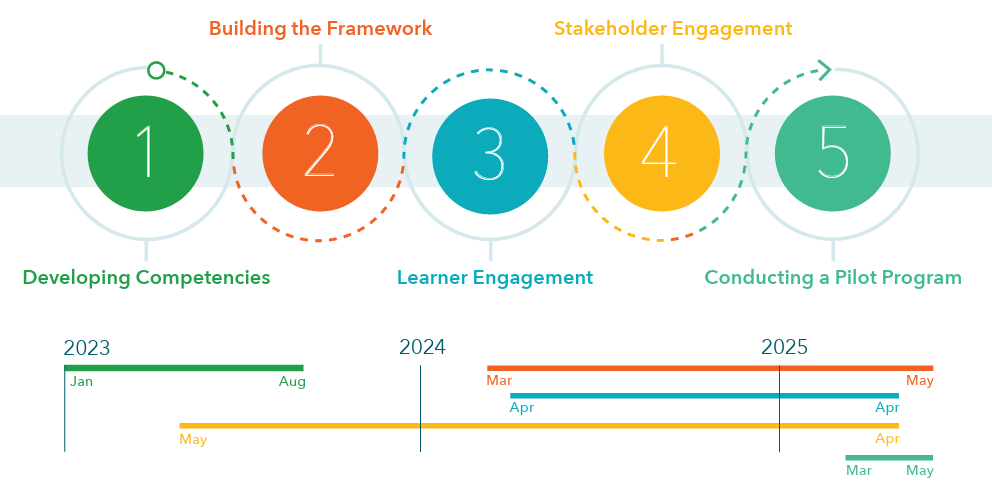
The goal of the finalized framework is to help CTE educators incorporate environmental literacy into daily instruction. It offers practical tools such as examples of sustainable practices for each career pathway and postsecondary options for learners interested in green careers. Educators will also have access to resources that make it easier to integrate these concepts into the classroom, such as lesson plans.
At the core of the framework are the environmental literacy competencies that guide what learners should know and be able to do that connect to goals for all careers. The competencies are designed to help learners understand the environmental impact of their chosen industry, evaluate sustainability trade-offs, and demonstrate responsible decision-making in professional contexts. Because they connect directly to Delaware’s science and social studies standards and align with the Next Generation Science Standards, they are intentionally crafted to be cross-cutting and interdisciplinary, applicable across all CTE pathways.
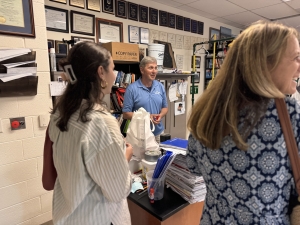
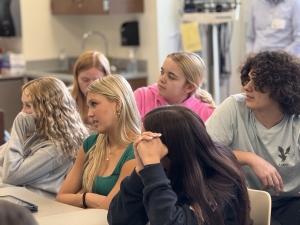
Throughout the project, the team gathered substantive feedback from educators, administrators, CTE directors, subject-area experts, and agency partners. Their insights helped refine each resource—competencies, crosswalks, and the Framework—to ensure they were comprehensive, relevant, and practical. Learners also played a central role in the feedback process.
Many were already aware of environmental issues impacting their daily lives, such as deforestation and damage to local beaches, a favorite hangout for Delaware teens. Their awareness and concern make the case for environmental literacy even stronger.
“We don’t really talk about environmental changes in our friend groups, but we know that it’s affecting us when we see all the trees chopped down and when the beaches are closed. That’s when it comes up in conversations.” – 9th grade K-12 Teacher Academy learner.
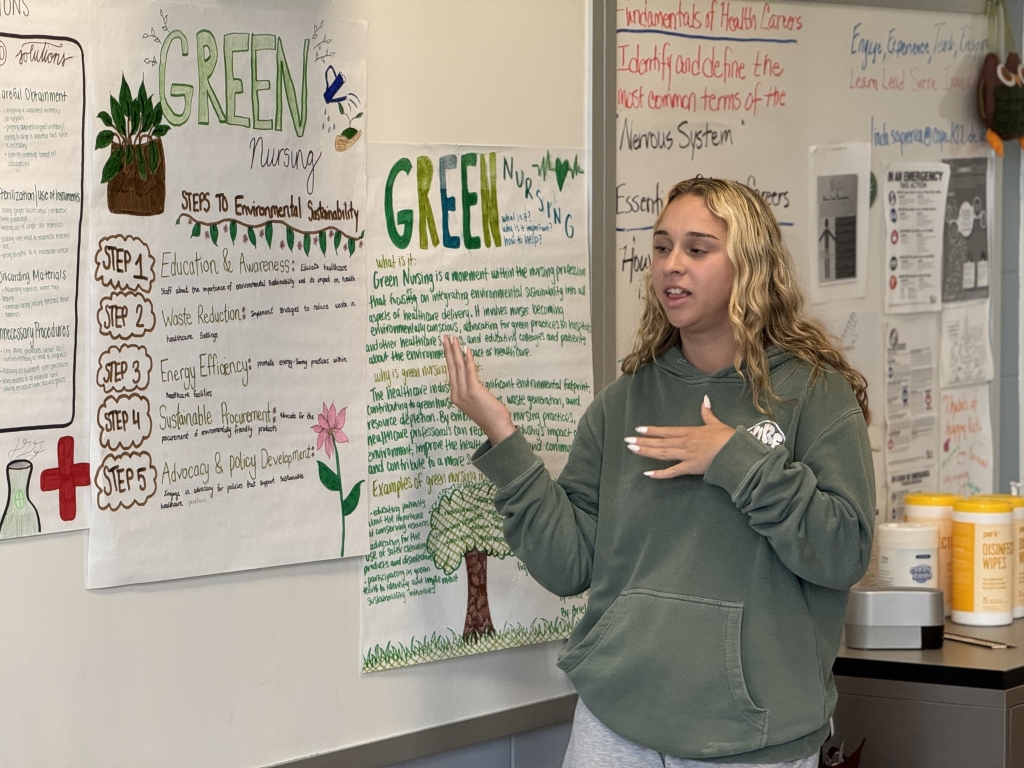
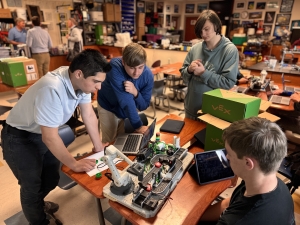
One of the most meaningful contributions from learners came from the YES! Delaware Youth Environmental Summit, an annual learner-led event hosted at the Chase Center in Wilmington that brings together environmentalists, educators, learners, and community leaders from across the state. During a session titled Fostering Meaningful Conversations: Engaging Students and the Public on Environmental and Climate Issues, learners Shrenik Patha and Lani Carrera—who also serves as the State President of the Educators Rising Career Technical Student Organization (CTSO)—joined Dr. Denise Purnell-Cuff, the lead liaison for Delaware’s environmental literacy project to talk about their experiences and offer advice to other learners looking to make a difference.
Framework documents were also validated through an eight-week pilot, which gave the team its first opportunity to test the Framework’s effectiveness. CTE educators from the AgriScience, Education, and Health Sciences pathways received the Framework along with crosswalk guidelines to support the integration of environmental literacy into their coursework. These educators provided extensive feedback on which components of the Framework were useful, what worked well, and what needed improvement.
With the Framework finalized, DDOE is now focused on facilitating its rollout and use across the state. The Framework will be housed on the Delaware Pathways website, and DDOE is seeking funding to provide professional development opportunities that help educators effectively use the available resources. In addition, DDOE is working to embed environmental literacy into other programs of study. Building on the positive feedback from the pilot, Delaware also hopes to formalize the use of the Framework through policy.
To learn how Delaware took bold, intentional steps to embed environmental literacy into career pathways, explore the case study from Advance CTE!
What you’ll find inside:
- Reflection questions to frame your approach
- Five key lessons learned with takeaways for implementation
- A model to engage learners and implement their feedback and expertise
- A clear breakdown of the early, intermediate, and advanced stages of integration
- Future-focused steps to continue building environmental literacy in CTE

